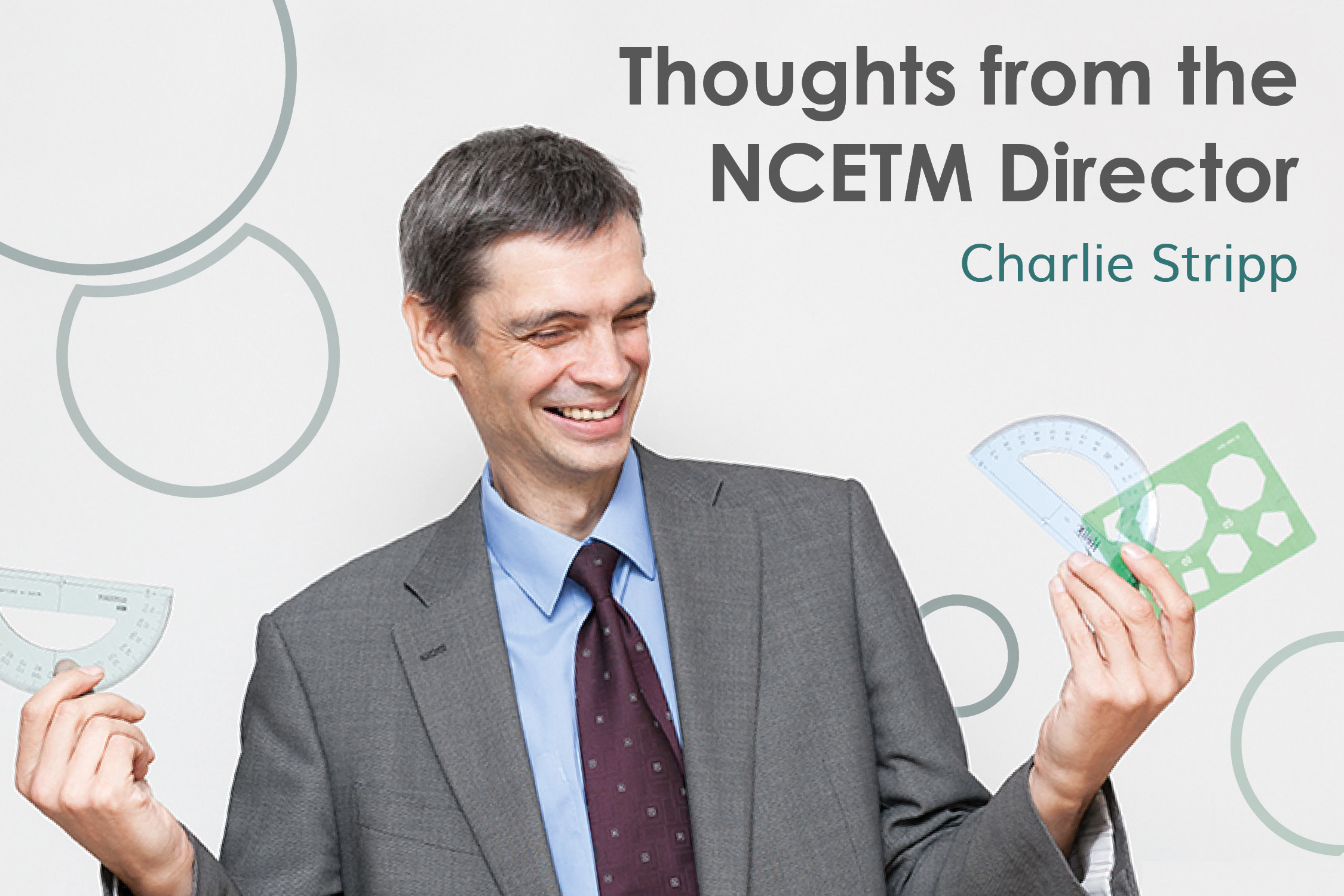Performance measures and early-entry GCSE
An article from our Director, Charlie Stripp
22/10/2013

School performance measures have a powerful influence on what happens in the classroom – and they are intended to. Their key purpose is to help drive effective teaching and learning. A problem for performance measures in all contexts, not just in education, is that if they don’t measure the right things they can be counter-productive, and it can be difficult to identify what the ‘right things’ are.
It seems obvious that schools should strive to achieve the best examination grades for their students and that, because having a grade C or above in GCSE Mathematics is so important for pupils’ future education and employment prospects, performance measures for schools should focus on pupils’ achieving a grade C or above in GCSE Mathematics. However, I think the use of pupils’ examination grades, and particularly the emphasis on the achievement of grade C in GCSE Mathematics (I won’t speak for other subjects) to measure school performance, is very damaging because it can lead to conflicts between the interests of the school and the interests of individual pupils, and between examination success and educational value.
The recent massive growth in the numbers of students taking GCSE Mathematics early has been driven by schools’ desire to maximise students’ chances of achieving at least a grade C, but there is strong evidence that this has damaged pupils’ mathematics education, because
- many fail to achieve the best grade they could have if they had taken the GCSE only at the end of KS4 (DfE, 2011)
- the whole of their secondary mathematics experience is focused on preparing for and taking examinations, rather than on developing their mathematical understanding and fostering a positive attitude towards the value of mathematics. This seems likely to be a major factor in many people’s negative attitude to mathematics, and in the concerns from higher education and employers that many young people, despite having a GCSE Mathematics pass at C or above are nevertheless poorly equipped to use mathematics in meaningful ways.
Both of these factors are very negative: students who get a C early are likely to lose motivation to improve on that grade, feeling that they have ‘got maths out of the way’; this means they are likely to concentrate on other subjects and fail to achieve their potential in maths. The experience of spending most of their secondary maths education focused narrowly on the exam means they are likely to form the impression that the only purpose of maths is to answer exam questions, which can turn them off the subject because it seems dull and pointless. The result is that students’ opportunities and motivation to progress in maths and maths-related subjects post-16 are reduced, restricting their future choices and employment opportunities – I wonder how many KS4 pupils do not realise that maths underpins such a high proportion of future careers, not just those in scientific areas.
For these reasons I welcome the new rules on early entry, and the recently-announced changes to performance measures, which mean it is now clearly in schools’ interests to maximise individual pupils’ grades, not just concentrate on the magic grade C. I do however concede that there might be two valid reasons for entering pupils early for GCSE Mathematics: (i) if they are extremely gifted and are almost certain to achieve an A* grade, in which case they will need to move on to a suitable mathematics enrichment programme to help them to realise their potential in mathematics (for example, the UK Mathematics Trust or NRICH), and (ii) for pupils in circumstances that mean that their best chance of success is through early entry, perhaps because they are in danger of dropping out of school altogether.
But I’m not convinced by the argument that early entry is useful for formative assessment, so helping to motivate pupils. I’m strongly in favour of the principle of effective formative assessment, but why use an external examination to obtain formative information? This uses up funding (in exam board fees) that should be spent on improving teaching and learning. By using their own formative assessment in the classroom, including internal tests when appropriate, (and by using mock examination papers near the end of the course), schools can obtain far more useful information to inform improvements in teaching and learning. Formative assessment is a key element of good mathematics teaching, but it should not involve external examinations, whose purpose is to provide summative assessment at the end of the course (see below for a list of references to formative assessment on the NCETM website).
I’ll end by saying I welcome the debate that these two issues have provoked, and am struck by the passion, and genuine concern for students’ life prospects, that has shone out from all of the comments by classroom teachers. That is, after all, why all of us entered the profession.
Formative assessment on the NCETM website:
- Mathemapedia entry: Assessment for Learning
- Mathematics Knowledge Networks Starting Point: Using assessment to promote learning in mathematics
- Mathematics SLE Toolkit: Strengthening Approaches to Assessment
- National Priority Project: Formative Assessment
- What does formative assessment look like in practice? (an In-Depth Study Module from the Excellence in Mathematics Leadership microsite (Primary))
- Assessment (from the One-to-one Teaching microsite).